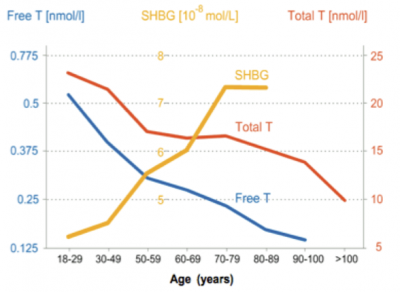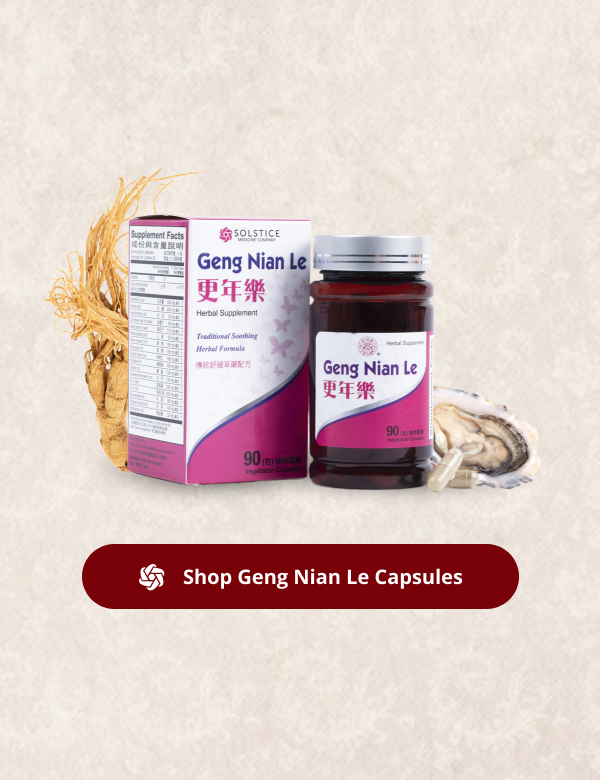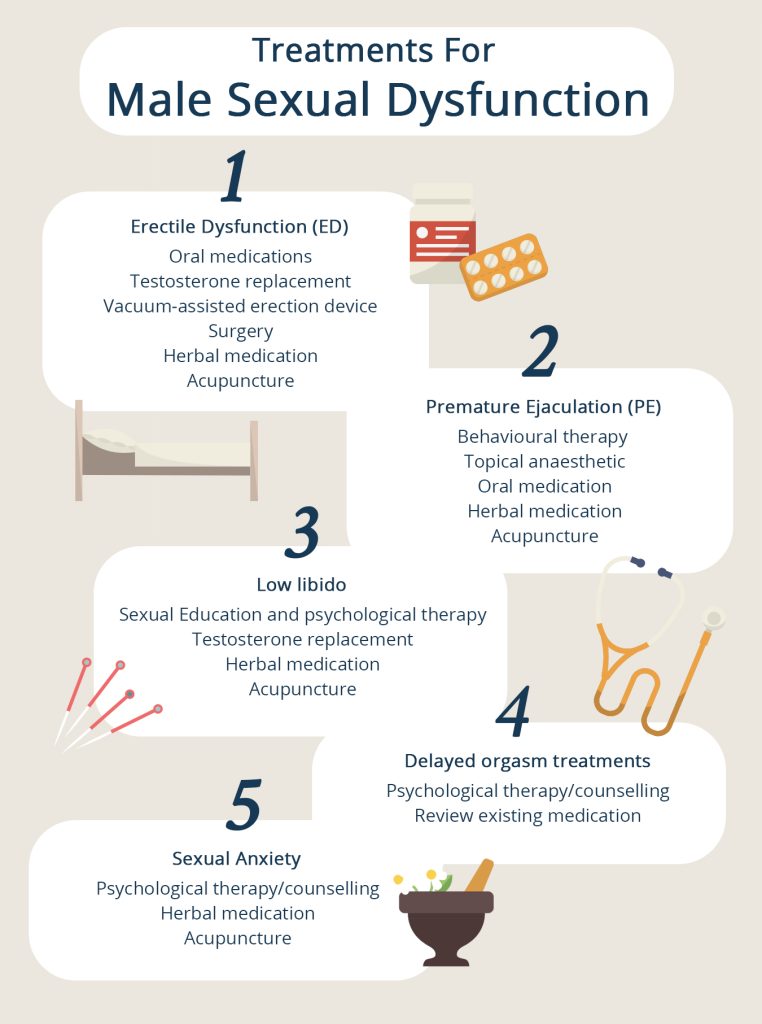
In Chinese Medicine, testosterone is considered important for maintaining overall health and vitality. This article will explore the traditional views on testosterone in Chinese medicine, including its role in reproductive health, energy levels, and aging. You’ll not only discover the various factors that can impact testosterone levels according to Chinese medicine, but also learn about the herbal remedies and lifestyle practices that are believed to support testosterone production. By the end of this article, you’ll have a clearer understanding of how Chinese medicine views testosterone and how it can be beneficial for your overall well-being.
Overview of Testosterone in Chinese Medicine
Understanding Traditional Chinese Medicine (TCM)
Traditional Chinese Medicine (TCM) is a holistic approach to healthcare that dates back thousands of years. It views the body as a whole and focuses on achieving balance and harmony to maintain optimal health. TCM encompasses various modalities such as acupuncture, herbal medicine, dietary therapies, and exercises like Tai Chi and Qigong.
Beliefs and Concepts of TCM
TCM is rooted in the belief that the body is interconnected and influenced by the forces of nature. It recognizes the vital energy known as Qi (pronounced “chee”) that flows through channels or meridians in the body. When Qi flows freely, there is balance and good health, but when Qi is blocked or imbalanced, disease and symptoms can arise.
Role of Testosterone in TCM
In TCM, testosterone is considered a vital substance that plays a crucial role in maintaining overall health and well-being. Testosterone is associated with the Kidney meridian, which is responsible for growth, development, reproduction, and vitality. Adequate testosterone levels are believed to contribute to a strong and healthy body.
Traditional Herbal Approaches to Testosterone
TCM utilizes various herbs to support and promote testosterone production naturally. These herbs are often combined in formulas tailored to the individual’s specific needs. Some commonly used TCM herbs for testosterone support include horny goat weed, ginseng, astragalus, and Tribulus terrestris. These herbs are believed to tonify the Kidney meridian and enhance testosterone production.
Balancing Yin and Yang in TCM
TCM places great importance on balancing Yin and Yang, two opposing aspects of energy in the body. Yin represents the feminine, cooling, and nourishing qualities, while Yang represents the masculine, warming, and activating qualities. Maintaining a harmonious balance between Yin and Yang is vital for optimal health, including testosterone balance.
Symptoms and Signs of Testosterone Imbalance in TCM
Identifying Hormonal Disharmony
In TCM, hormonal imbalances, including testosterone imbalances, are often seen as a result of disharmony in the body. Signs and symptoms of testosterone imbalance can manifest differently in individuals, but TCM practitioners are trained to recognize patterns and identify the underlying disharmony contributing to the symptoms.
Common Symptoms of Low Testosterone in TCM
Low testosterone levels in TCM may present with symptoms such as fatigue, low libido, erectile dysfunction, depression, hair loss, frequent urination, and aching joints. TCM considers these symptoms as indications of Kidney Yin deficiency and Yang excess, where the body lacks nourishment and vitality.
Common Symptoms of High Testosterone in TCM
High testosterone levels in TCM may manifest as symptoms such as irritability, aggression, acne, oily skin, excessive body hair, and a short temper. TCM views these symptoms as signs of Liver Qi stagnation and potential heat or Dampness in the body, leading to an imbalance of Yin and Yang.
Diagnostic Techniques in TCM
TCM practitioners use various diagnostic techniques to assess testosterone imbalance. These may include pulse diagnosis, tongue examination, and detailed questioning about symptoms, lifestyle, and emotional well-being. By analyzing these factors, TCM practitioners can identify the pattern of disharmony and develop a personalized treatment plan.
Mapping Symptoms to TCM Patterns
TCM patterns provide a framework for understanding the underlying imbalances causing testosterone symptoms. For example, Kidney Yin deficiency may be identified if symptoms such as fatigue and low libido are coupled with a pale tongue and a thin, weak pulse. By mapping symptoms to TCM patterns, practitioners can tailor treatment to address the root cause.
Natural Approaches to Boosting Testosterone in TCM
Dietary Modifications for Testosterone Enhancement
In TCM, diet plays a crucial role in promoting hormonal balance, including testosterone. Certain foods and herbs, such as oysters, ginseng, black sesame seeds, and goji berries, are considered beneficial for supporting the Kidney meridian and enhancing testosterone production. TCM practitioners may recommend incorporating these foods into the diet to optimize hormonal health.
The Role of Stress and Emotional Well-being
Stress and emotional well-being are important factors in maintaining testosterone balance. TCM recognizes that emotional imbalances, such as excessive anger or chronic stress, can negatively impact hormonal health. Practices like meditation, acupuncture, and herbal formulas targeting the Liver meridian may help alleviate stress and promote emotional stability.
Acupuncture and Acupressure for Testosterone Balance
Acupuncture and acupressure are commonly used in TCM to stimulate specific acupuncture points along the body’s meridians. These techniques aim to promote the flow of Qi, remove blockages, and restore balance. Certain acupuncture points are known to have a regulating effect on the Kidney meridian, helping to optimize testosterone levels.
Herbal Remedies and Formulas for Testosterone Support
TCM utilizes a wide range of herbal remedies and formulas to support testosterone production. These formulas are typically customized to address individuals’ unique patterns of disharmony. Herbal combinations may include ingredients such as Tribulus terrestris, ginseng, Epimedium, and rehmannia, which are believed to nourish the Kidney meridian and optimize hormone levels.
Exercise and Physical Activities in TCM
Regular exercise is considered essential in TCM for maintaining overall health, including testosterone balance. Exercise helps promote Qi circulation, reduce stress, and improve overall vitality. Practices such as Tai Chi and Qigong, which combine gentle movements, deep breathing, and meditation, are often recommended to support optimal hormonal health.
Understanding TCM Patterns Related to Testosterone
Exploring Yin Deficiency and Yang Excess
Yin deficiency and Yang excess are commonly seen patterns related to testosterone imbalances in TCM. Yin deficiency may manifest as symptoms of fatigue, low libido, and dryness, indicating a lack of nourishment. Yang excess may present as symptoms of heat, irritability, and aggression, suggesting an imbalance in energy distribution.
Blood Stagnation and Its Impact on Testosterone
Blood stagnation is another pattern that can affect testosterone balance. If the flow of blood becomes blocked or stagnant, it can disrupt the nourishment of tissues and organs, including the reproductive system. Symptoms such as aching joints, dark or clotted menstrual blood, and cold hands and feet may indicate blood stagnation affecting testosterone.
Kidney Yin and Yang Imbalances
In TCM, the Kidney meridian is closely linked to testosterone production. Imbalances in Kidney Yin and Yang can contribute to testosterone issues. Kidney Yin deficiency may lead to symptoms of fatigue, low libido, and hot flashes, while Kidney Yang excess may result in symptoms such as aggression, irritability, and excessive body hair.
Liver Qi Stagnation and Testosterone
The Liver meridian is responsible for the smooth flow of Qi throughout the body. When Liver Qi becomes stagnant, it can disrupt hormonal balance and affect testosterone levels. Symptoms of Liver Qi stagnation may include irritability, mood swings, and feelings of frustration or depression.
Spleen Qi Deficiency and Its Influence on Testosterone
Spleen Qi deficiency is characterized by a weakened digestive system and poor nutrient absorption. In TCM, the Spleen meridian plays a role in transforming nutrients into Qi and Blood. When Spleen Qi is deficient, it can impact testosterone production. Symptoms may include fatigue, poor appetite, bloating, and loose stools.
Heart and Lung Health in Relation to Testosterone
The Heart and Lung meridians also have a role to play in testosterone balance. The Heart stores the Shen, or spiritual consciousness, which impacts emotions and overall well-being. Emotional imbalances affecting the Heart can disrupt hormonal health. The Lung meridian is responsible for Qi and Blood circulation, which nourishes the body and supports testosterone production.

TCM Treatment Strategies for Testosterone Imbalance
Tonifying Kidney Yin and Yang
TCM treatment for testosterone imbalance often involves tonifying the Kidney Yin and Yang energies. Herbal formulas containing ingredients like rehmannia, goji berries, and cinnamon bark may be prescribed to nourish the Kidney meridian and restore balance. Lifestyle modifications, including stress reduction techniques and dietary changes, may also support Kidney health.
Regulating Qi and Blood Circulation
To address symptoms related to Liver Qi stagnation or Blood stagnation, TCM treatment aims to regulate Qi and Blood circulation. Acupuncture or acupressure techniques targeting specific points along the Liver and Spleen meridians may be utilized. Herbal formulas containing herbs known to promote Qi and Blood flow, such as Chai Hu, may also be recommended.
Clearing Heat and Dampness in TCM
If symptoms indicate potential heat or Dampness in the body, TCM treatment may focus on clearing these imbalances. Herbs with cooling properties, such as licorice root and mint, may be used to reduce heat, while herbs like Poria mushroom and Job’s tears may help eliminate Dampness. These approaches aim to restore Yin-Yang balance and optimize testosterone levels.
Nourishing Liver and Spleen for Hormonal Balance
As the Liver and Spleen meridians play important roles in hormone regulation, TCM treatment may focus on nourishing these organs. Herbal formulas containing ingredients like bupleurum and white peony root may be used to support Liver health, while herbs like Ginseng and Astragalus may help strengthen the Spleen meridian.
Calming the Mind and Emotional Stability
Emotional well-being is an integral part of TCM treatment for testosterone imbalance. Practices such as meditation, mindfulness, and guided relaxation techniques may be recommended to help alleviate stress and promote emotional stability. Herbal formulas containing calming herbs such as Schisandra and Albizia flower may also be used to nourish the Shen and promote hormonal balance.
TCM Case Studies and Success Stories
Real-life Examples of Testosterone Imbalance Treatment
Testosterone imbalance can affect individuals of any age or gender. TCM has been used to successfully treat various cases of testosterone imbalances. For example, a 45-year-old man with low testosterone and fatigue found relief through a personalized TCM treatment plan that included acupuncture, herbal formulas, and dietary modifications. After several weeks, he reported increased energy levels, improved libido, and a sense of overall well-being.
Patient Experiences of TCM Therapies
Many individuals who have sought TCM treatment for testosterone imbalance report positive outcomes and improvements in their health. Patients often cite increased energy, better mood, improved sexual function, and reduced symptoms associated with hormonal imbalances. These experiences highlight the potential of TCM as a natural and holistic approach to hormone balance.
Positive Outcomes and Long-term Results
TCM treatment for testosterone imbalance aims to address the root cause of symptoms and restore balance to the body. By focusing on the individual’s unique pattern of disharmony, TCM offers personalized treatment plans. Positive outcomes and long-term results can be achieved through a combination of herbal remedies, acupuncture, dietary modifications, and lifestyle changes.
Combination Therapies in TCM Practice
TCM practitioners may utilize a combination of therapies to address testosterone imbalance. For example, a treatment plan may include a customized herbal formula, acupuncture sessions, dietary recommendations, and stress reduction techniques. By combining different modalities, TCM aims to provide a comprehensive and synergistic approach to restoring hormonal balance.

Understanding the Limitations of TCM for Testosterone
Complementary Approach to Western Medicine
While TCM can offer valuable insights and approaches to testosterone balance, it is important to recognize that it should not replace Western medical treatment. TCM can be used as a complementary approach, working alongside conventional medicine to optimize overall health and wellbeing.
Individual Variations and Personalized Treatment
Each individual’s hormonal imbalance is unique, meaning that TCM treatment should be personalized to their specific needs. What works for one person may not necessarily work for another. TCM practitioners take into account the individual’s constitution, symptoms, and underlying patterns of disharmony when designing a treatment plan.
Potential Risks and Side Effects
TCM herbs and therapies are generally considered safe when used under the guidance of a qualified practitioner. However, it is important to consult with a TCM practitioner to ensure the safe use of herbs and to avoid potential risks or side effects. Some herbs may have interactions with certain medications, so it is crucial to disclose any ongoing treatments.
Contraindications and Important Considerations
Certain TCM treatments or herbs may be contraindicated for individuals with specific health conditions or during pregnancy. It is important to provide a detailed medical history and inform the TCM practitioner of any existing medical conditions or medications. This information will help the practitioner design a safe and effective treatment plan.
TCM Practitioner Perspectives on Testosterone
Insights from Experienced TCM Practitioners
Experienced TCM practitioners bring a wealth of knowledge and insights when it comes to testosterone balance. Through their clinical practice, they have observed patterns and treatment strategies that have proven effective for their patients. They understand the importance of holistic care and strive to address not only the symptoms but also the underlying imbalances causing testosterone issues.
Holistic Approach to Hormonal Health
TCM takes a holistic approach to hormonal health by considering the interconnectedness of the body, mind, and spirit. TCM practitioners recognize that hormonal imbalances can be influenced by lifestyle factors, emotional well-being, and overall vitality. By addressing these factors, TCM aims to restore balance and optimize testosterone levels naturally.
Integration of TCM and Modern Healthcare
Many TCM practitioners recognize the value of integrating TCM with modern healthcare approaches. They believe that collaboration between Eastern and Western medicine can provide comprehensive care for patients. TCM can offer unique insights and treatment options to enhance hormonal health, while Western medicine can provide diagnostic tools and interventions when necessary.
Patient Education and Empowerment
Empowering patients to take an active role in their healthcare is an important aspect of TCM practice. TCM practitioners aim to educate patients about their hormonal imbalances and provide them with tools and knowledge to support their own well-being. By understanding their own bodies and making informed choices, patients can play an active role in optimizing their testosterone balance.

Research and Evidence on TCM’s Impact on Testosterone
Scientific Studies and Clinical Trials
Research on the impact of TCM on testosterone balance is growing. Scientific studies and clinical trials have explored the effects of TCM treatments, such as herbal formulas and acupuncture, on hormonal health. While more research is needed, early studies have shown promising results in supporting testosterone production and addressing symptoms of hormonal imbalance.
Meta-analyses and Reviews of TCM for Testosterone
Meta-analyses and reviews of TCM for testosterone imbalance have provided valuable overviews of existing studies. These analyses compile and analyze data from multiple studies to assess the overall efficacy and safety of TCM treatments. While individual studies may have limitations, meta-analyses provide a broader perspective on the impact of TCM interventions on testosterone balance.
Evaluating Efficacy and Safety
Evaluating the efficacy and safety of TCM treatments for testosterone imbalance is an ongoing process. Researchers continue to investigate TCM interventions and compare them to conventional treatments. These studies aim to provide evidence-based recommendations and guidelines for the safe and effective use of TCM in optimizing testosterone balance.
Emerging Trends and Future Directions
As research on TCM and testosterone balance continues to evolve, new trends and future directions are emerging. The integration of TCM with modern healthcare, the use of personalized treatment plans, and the development of evidence-based guidelines are among the trends shaping the future of TCM for testosterone imbalance.
Conclusion: Exploring the Potential of TCM for Testosterone Balance
TCM offers a holistic and personalized approach to testosterone balance. By understanding the interconnected nature of the body and using various modalities such as acupuncture, herbal medicine, and dietary therapies, TCM aims to restore hormonal harmony. Although more research is needed, the experiences of patients and the insights of TCM practitioners highlight the potential of TCM in optimizing testosterone levels and promoting overall well-being. If you are experiencing symptoms of testosterone imbalance, consider consulting with a qualified TCM practitioner to explore the potential benefits of TCM in your journey towards hormonal health.

